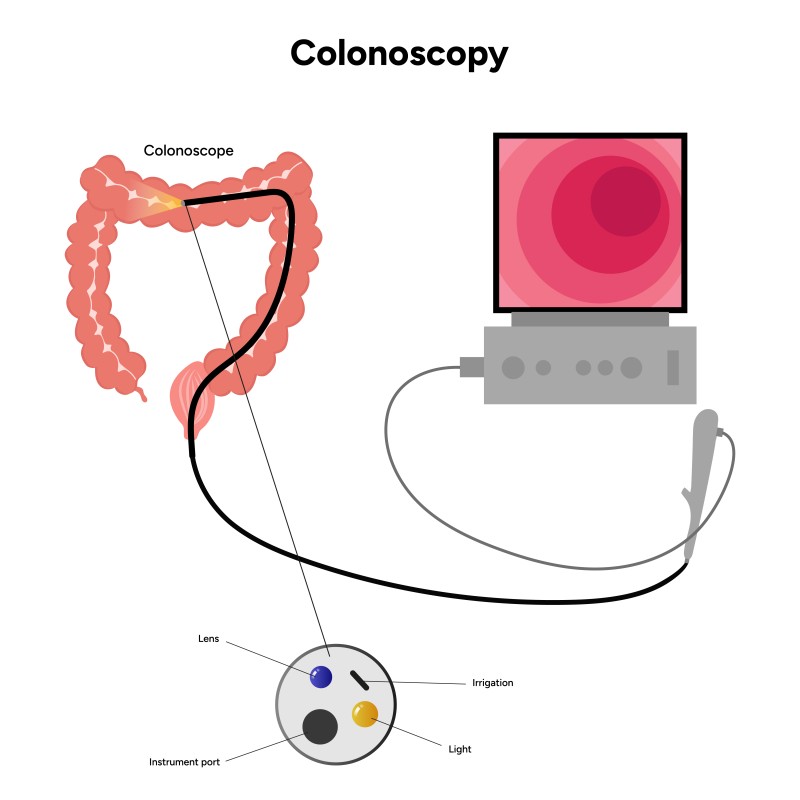Colonoscopy

Colonoscopy is a medical procedure that allows a doctor to examine the entire colon (large intestine) and rectum for signs of disease or abnormalities. It is performed using a long, flexible tube called a colonoscope, which has a camera and light at its tip to provide real-time images of the colon lining. Colonoscopy is typically done as a preventive measure or to investigate symptoms like gastrointestinal bleeding or unexplained changes in bowel habits.
Uses:
- Cancer Screening: Colonoscopy is the gold standard for colorectal cancer screening. It can detect early signs of cancer or precancerous growths (polyps) in the colon before they become problematic.
- Investigating Symptoms: It is used to investigate symptoms such as unexplained abdominal pain, persistent changes in bowel habits (diarrhea or constipation), unexplained weight loss, or rectal bleeding.
- Chronic Conditions Diagnosis: It helps diagnose conditions like Crohn’s disease, ulcerative colitis, diverticulosis, and other gastrointestinal disorders.
- Polyp Removal: Colonoscopy can detect and remove polyps, preventing the development of colorectal cancer in the future.
Who Needs It:
- Routine Screening: Recommended for adults over 50 or younger individuals with a family history of colorectal cancer or polyps.
- High-Risk Individuals: People with a personal or family history of colorectal cancer, inflammatory bowel disease (IBD), or polyps are encouraged to undergo regular colonoscopies.
- Symptomatic Patients: Individuals who experience symptoms like unexplained gastrointestinal bleeding, persistent diarrhea, abdominal pain, or drastic changes in bowel movements.
- Follow-up for Existing Conditions: Those with a history of colorectal polyps or previous colon-related conditions may need routine colonoscopies for monitoring.
Benefits of Colonoscopy:
- Early Detection of Cancer: Colonoscopy is one of the most effective ways to detect early signs of colorectal cancer, significantly improving the chances of successful treatment.
- Polyps Detection & Removal: The procedure allows for the detection and removal of polyps during the same session, which can prevent the development of cancer.
- Accurate Diagnosis: Colonoscopy provides a thorough examination, allowing the doctor to identify the cause of symptoms and make an accurate diagnosis.
- Minimal Recovery Time: Colonoscopy is a minimally invasive procedure, and recovery time is typically short, allowing most patients to resume normal activities soon after the procedure.
At Triveni Poly Clinic, our expert gastroenterologists offer advanced colonoscopy services with state-of-the-art equipment to ensure the highest level of care. We use the latest technology to provide clear, detailed imaging and efficient results. Our team is committed to making the procedure as comfortable as possible, with minimal discomfort and fast recovery. Whether you are undergoing a routine screening or investigating specific gastrointestinal concerns, we are dedicated to providing personalized, compassionate care to help you maintain optimal digestive health.